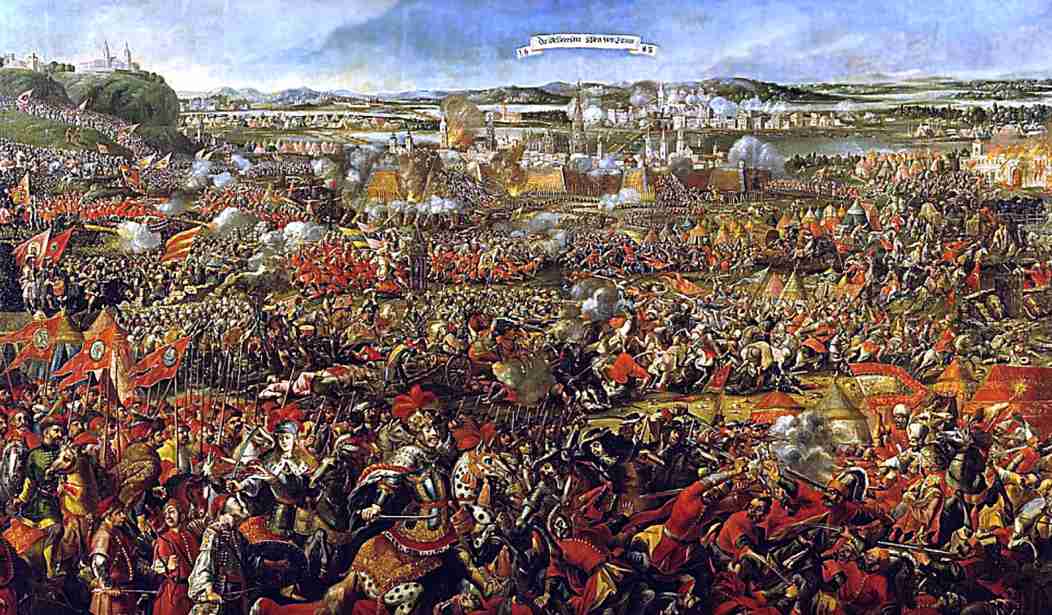Recently we saw just how Islamic the Austrian capital of Vienna — where Muslims now outnumber Christians in the schoolrooms — had become. Hand in hand with this influx of Muslims has been an influx of crimes:
Muggings and beatings are becoming commonplace in the historic capital city, with passersby being attacked on almost a daily basis….The Praterstern area, just outside central Vienna, is now controlled by North Africans and is considered the worst area in the city for crime. Despite police increasing their presence in the area it has become riddled with crime. On the other side of the city, the area surrounding the West Railway Station has been taken over by Afghans who have been making headlines for all the wrong reasons…. Crimes carried out by migrants in Austria have risen rapidly over the past year as more arrive in the country. Last year [2016], there were a total 22,000 criminal complaints against migrants, up from 14,000 in 2015, the Austrian Interior Ministry revealed. Sex attacks carried out by asylum seekers has become a serious problem in Austria, with a 133 per cent increase in migrant sex attacks in the past year since the migrant crisis erupted. Swimming pools and other public venues have become some of the most prevalent areas for attacks to take place.
The ironies surrounding these developments are many, but one — which shows both the importance of history and the fate of those who reject it — occurred on this very day in history.
On July 15, 1683, the largest Islamic army ever to invade European territory — which is saying much considering that countless invasions preceded it since the eighth century — had reached, surrounded, and begun its massive bombardment of Vienna, the then heart of the Holy Roman Empire and chief nemesis of the Ottoman Empire.
Some 200,000 Muslim combatants, under the leadership of the Ottomans — the one state in nearly fourteen centuries of Islamic history most dedicated to and founded on the principles of jihad — invaded under the same rationale that so-called “radical” groups, such as the Islamic State, cite to justify their jihad on “infidels.” To quote the leader of the Muslim expedition, Grand Vizier Kara Mustafa, because Vienna was perceived as the head of the infidel snake, it needed to be laid low so that “all the Christians would obey” their Islamic overlords.
This was no idle boast; sources describe this Mustafa as “fanatically anti-Christian.” After capturing a Polish town in 1674, he ordered all the Christian prisoners to be skinned alive and their stuffed hides sent as trophies to Ottoman Sultan Muhammad IV. Such supremacist hate was standard and on display during the elaborate pre-jihad ceremony presaging the siege of Vienna. Then, the sultan, “desiring him [Mustafa] to fight generously for the Mahometan faith,” to quote a contemporary European source, placed “the standard of the Prophet… into his hands for the extirpation of infidels, and the increase of Muslemen.”
Once the massive Muslim army had reached and surrounded the walls of Vienna on July 14, Mustafa followed protocol. In 628, his prophet Muhammad had sent an ultimatum to Eastern Roman Emperor Heraclius: aslam taslam, “submit [to Islam] and have peace.” Heraclius rejected the summons, jihad was declared against Christendom (as enshrined in Koran 9:29), and in a few decades, two-thirds of the then-Christian world — including Spain, all of North Africa, Egypt, and Greater Syria — were conquered.
Now, over a thousand years later, the same ultimatum of submission to Islam or death had reached the heart of Europe. The Viennese commander did not bother to respond to the summons; graffiti inside the city — including “Muhammad, you dog, go home!” — seems to have captured its mood.
So it would be war. On the next day, July 15 — today in history — Mustafa unleashed all hell against the city’s walls, and for two months, the holed-up and vastly outnumbered Viennese suffered plague, dysentery, starvation, and many casualties — including women and children — in the name of jihad.
Then, on September 12, when the city had reached its final extremity, and the Muslims were about to burst through, Vienna’s prayers were answered. As an anonymous Englishman explained:
After a siege of sixty days, accompanied with a thousand difficulties, sicknesses, want of provisions, and great effusion of blood, after a million of cannon and musquet shot, bombs, granadoes, and all sorts of fireworks, which has changed the face of the fairest and most flourishing city in the world, disfigured and ruined [it] . . . heaven favorably heard the prayers and tears of a cast down and mournful people.
The formidable king of Poland, John Sobieski, had finally come at the head of 65,000 horsemen—including the famed winged hussars—all hot to avenge the beleaguered city. Arguing that “It is not a city alone that we have to save, but the whole of Christianity, of which the city of Vienna is the bulwark,” Sobieski led a thunderous cavalry charge—history’s largest—against and totally routed the Muslim besiegers. (See "Sword and Scimitar" for a detailed recounting of this pivotal battle.)
Although a spectacular victory, the aftermath was gory: before fleeing, the Muslims ritually slaughtered some 30,000 Christian captives collected during their march to Vienna — raping the women beforehand. On entering the relieved city, the liberators encountered piles of corpses, sewage, and rubble everywhere.
Incidentally, it is this history of Islamic aggression — beginning in the fourteenth century when Muslims first established a foothold in Eastern Europe (Thrace), and into the twentieth century when the Ottoman sultanate finally collapsed — that largely informs Eastern European views on Islam. Whereas Western nations cite lack of integration, economic disparities, and grievances to explain away the exponential growth of terrorism, violence, and rapes that come with living alongside large Muslim populations — such as in Vienna — Eastern nations see only a continuity of hostility. As one Pole, echoing the words of Sobieski, said during an anti-Muslim demonstration in 2017: “a religious war between Christianity and Islam is once again underway in Europe, just like in the past.”
As for those who do not learn from the past — such as “open-doors” Vienna, which should have been especially appreciative of its history with Islam — they are on their way to becoming mere appendages of the umma, as today's Muslim refugees achieve what yesterday's Muslim empires could not.










Join the conversation as a VIP Member